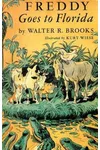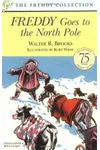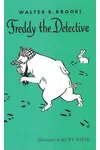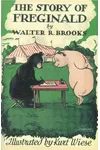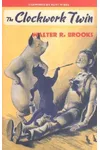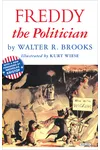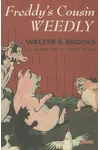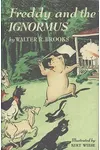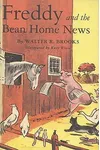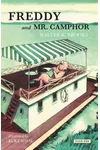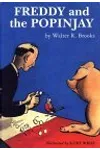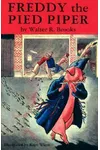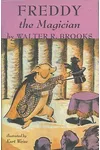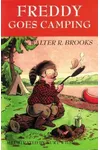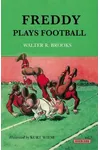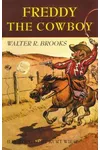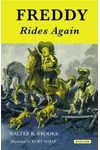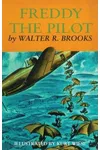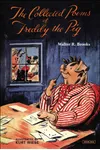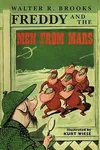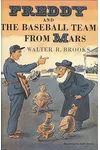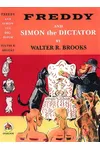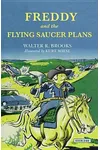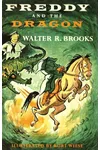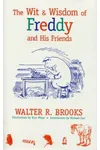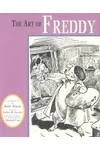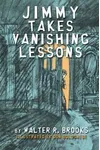Picture a witty American storyteller who spun tales of talking animals with a charm that still captivates readers—meet Walter R. Brooks! Born in 1886, this imaginative author brought the lovable Freddy the Pig and the iconic Mister Ed to life, blending humor, adventure, and heart in stories that feel like a warm hug from a bygone era.
Brooks’s knack for anthropomorphic characters made him a standout in children’s literature, with 26 Freddy the Pig novels and a collection of short stories that inspired a hit TV show. His work, set in the idyllic Bean Farm, is a delightful mix of clever plotting and playful wit that continues to enchant readers young and old.
The Making of Walter R. Brooks
Walter Rollin Brooks was born on January 9, 1886, in Rome, New York, to a family touched by tragedy. Orphaned young, he spent time at a military academy before studying at the University of Rochester. His brief stint in homeopathic medicine ended when he dropped out, drawn instead to creative pursuits. After marrying Anne Shepard in 1909, Brooks dabbled in advertising, retired briefly thanks to an inheritance, and later worked for the American Red Cross and magazines like The New Yorker. These varied experiences shaped his sharp, humorous voice, which would later shine in his stories.
Walter R. Brooks’s Unforgettable Stories
Brooks’s literary legacy kicked off with poems and short stories, but his 26 Freddy the Pig novels, starting with Freddy Goes to Florida (1927), cemented his fame. Freddy, a clever, multifaceted pig, tackles roles like detective, pilot, and newspaper editor, all while navigating adventures with his Bean Farm pals. The series, illustrated by Kurt Wiese, blends humor and social commentary, with titles like Freddy the Politician (1939) slyly exploring themes like voter fraud.
His short stories about Mister Ed, a talking horse with a penchant for mischief, debuted in magazines and later inspired the 1960s TV series Mister Ed. Unlike typical children’s tales, Brooks’s stories don’t shy away from the absurdity of talking animals, giving them a self-aware charm. His prose, praised for its wit and elegance, feels like a chat with a clever friend, making books like Freddy the Detective (1932) timeless gems.
The Freddy series, spanning 1927 to 1958, offers a rich world where animals run banks, start newspapers, and even travel to space. Brooks’s ability to weave wholesome lessons into absurd scenarios—without being preachy—sets his work apart, earning comparisons to P.G. Wodehouse and Kenneth Grahame.
Why Walter R. Brooks Matters
Brooks’s stories are more than just fun—they’re a masterclass in storytelling that shaped American children’s literature. His Freddy series, with its sharp dialogue and relatable characters, influenced generations of writers and readers, earning praise from critics like Nicholas Kristof, who called them “funny, beautifully written gems.” The Overlook Press’s reissues in the 2000s revived interest, and fans, through the Friends of Freddy club, keep his legacy alive with conventions and global book distributions.
Brooks’s impact extends to pop culture via Mister Ed, proving his ideas could leap from page to screen. His lighthearted yet insightful take on human nature, disguised as animal antics, remains relevant, offering readers a joyful escape and a reminder of the power of imagination.
- Born: January 9, 1886, Rome, New York
- Died: August 17, 1958, Roxbury, New York
- Key Works: Freddy the Pig series, Mister Ed short stories
- Notable: Inspired the 1960s TV series Mister Ed
Ready to meet a pig who’s a poet, detective, and all-around hero? Grab Freddy the Detective and dive into Walter R. Brooks’s whimsical world of talking animals!
